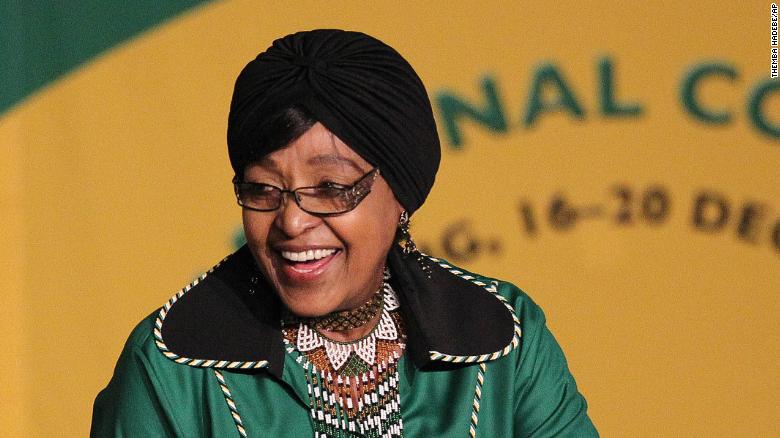Why Winnie Mandela must be celebrated as an African feminist icon
Why Winnie Mandela must be celebrated as an African feminist icon
By Farai Gundan, Special to CNN
"Zimbabwean-born Farai Gundan is a speaker and commentator on the role of women in Africa. She's a graduate of the master in public administration program at Harvard Kennedy School and an Edward S. Mason Fellow. She serves on the board of advisers for the Harvard Africa Policy Journal. Farai is a Young Global Leader and a Dangote Fellow. The views expressed in this commentary are her own."

(CNN)The struggle for racial equality in South Africa was not necessarily fought on Robben Island where Nelson Mandela and other prominent political activists spent the better part of 27 years.
Apartheid was battled predominantly on the streets of South Africa, and the fight was led by the fearless Winnie Madikizela-Mandela, then the young wife of freedom fighter Nelson Mandela.
It was Madikizela-Mandela who reminded the nation and the world of the urgency to resist racial injustice toward Africans. She remained on the front lines to demand freedom, not just for the political prisoners, but also for the 40 million black and brown people that made up the nation of South Africa.
While the people sang songs about Nelson Mandela, it was Madikizela-Mandela, unbowed, courageous and unyielding, who kept the untethered hope of the people focused and alive during the horrors perpetrated by the apartheid regime. "They think because they have put my husband on an island that he will be forgotten. They are wrong. The harder they try to silence him, the louder I will become," she said at the time. And louder she became, giving a face to the struggle against racial apartheid and an impassioned voice for the countless number of people killed during the apartheid era. Through this, she earned the title, "Mother of the Nation." It is telling that she chose to live among the people in Soweto until her passing.
. . . . .
It appeared her failings were far greater than her contributions during the fight for freedom; a double standard women continue to face even today. Although she played a pivotal role in the country's quest for independence, her political journey and fight for freedom was complicated and best understood within the context of the South African patriarchal system. The beasts of patriarchy and misogyny were deeply entrenched cultural practices and norms within all the races in South Africa; Black, white, Indian, and colored (mixed race). Women were and are often seen and treated as second-class citizens in a country dominated by men. She had to navigate these complex systems and cultural practices as best as she knew how,  in May 1977 for example, she was banished from Soweto, in Johannesburg, to another African township outside the Afrikaaner dominated town of Brandfort, in Orange Free State).
in May 1977 for example, she was banished from Soweto, in Johannesburg, to another African township outside the Afrikaaner dominated town of Brandfort, in Orange Free State).
. . . . .
In some respect, her life has been a sustained assault on what the African female voice should be.Like her Xhosa name, Nomzamo, which means "she who endures trials," she endured the struggle against apartheid until the end. South African President Cyril Ramaphosa said of her, "She was stubborn on behalf of our people because she knew that out her stubborn disposition, she would be able to inspire millions of South Africans. Winnie Mandela leaves a huge legacy.
As we say in African culture, "A giant tree has fallen."
https://www.cnn.com/2018/04/12/africa/winnie-mandela-african-feminist-icon-intl/index.html
